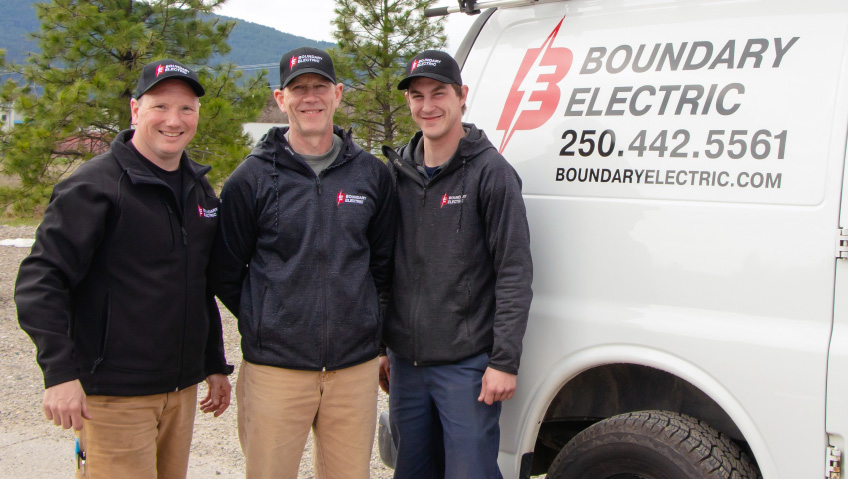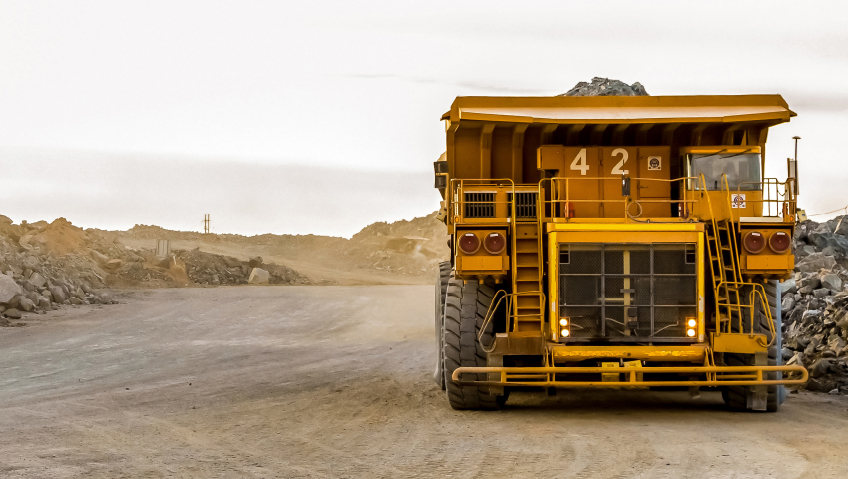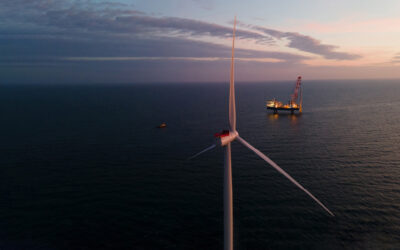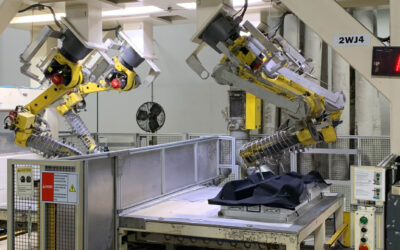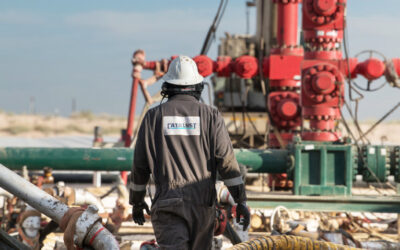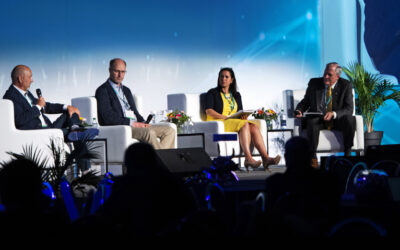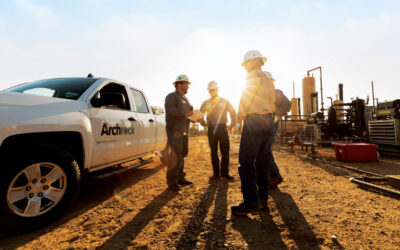Boundary Electric of Grand Forks, British Columbia, has been designing and manufacturing electrical transmission equipment for over seventy-five years. The longevity of this family-run firm is due, in part, to its ability to recognize emerging markets that require huge supplies of electricity. In doing this, the company has become a leader in building electrical infrastructure for cryptocurrency mining and is closely monitoring developments in the nascent hydrogen energy sector.
“We manufacture electrical equipment for industries that are growing in demand,” says David Evdokimoff, Chief Executive Officer of Boundary Electric. “A large part of our business is transformers and switchgear distribution. We manufacture that for multiple industries: oil and gas, hopefully hydrogen, data centres, crypto, electrical utilities.” A data centre is a secure location where networked computer systems store, process, and/or distribute gargantuan amounts of digital information.
Boundary, which also serves municipalities, maintains two facilities in Grand Forks and one in Trail, British Columbia.
“We’re an original equipment manufacturer (OEM), so we manufacture a majority of our equipment. We have subcontractors and some items we outsource to keep costs down, but most is manufactured out of our Grand Forks and Trail facility,” Evdokimoff explains.
In addition to transformers and switchgear equipment, the company also designs and manufactures metering kiosks, substation components, splitters, portable power centres, and motors. It offers testing, inspection, maintenance, repairs, and electrical servicing and contracting as well. While the company primarily works in North America, it has shipped its wares as far afield as Egypt, Greenland, South America, and the Philippines. The firm also installs equipment within the British Columbia interior.
A few years ago, Boundary developed a new specialty working with the budding cryptocurrency scene. New crypto coins are created or ‘mined’ by powerful computers that solve complex math problems to validate transactions. Housed in data centres, these computers require a lot of electricity.
“We had a company call and they said they want to put fifty megawatts into a building. That’s the equivalent of putting the power that would go to a city into a building. It didn’t make any sense. We were like, ‘Why would you want to do that?’ So, that was our introduction to Bitcoin,” recalls Evdokimoff.
After supplying electrical equipment to this client, “Our phone rang off the hook. From that point on, we manufactured electrical equipment for a few other major players in the game,” he adds.
Boundary Electric was founded in 1947 by Allen Napoleon Docksteader and his son, Wes Docksteader, with a focus on manufacturing and distributing electrical transmission gear. The company remains a family business, with Allen’s great-grandson Justin Docksteader serving as Evdokimoff’s business partner. The plan is to keep Boundary a family firm going forward. At present, the company has approximately eighty employees across all branches.
“I think for us it’s creativity, and attitude,” Evdokimoff says, regarding what the company looks for in potential hires. “Skill set, we can teach. We’re looking for people who are able to work on the fly, able to take on problems that come at them and see the opportunity as opposed to roadblocks. We’re looking for people that work exceptionally well in a team, especially in tackling new things. If you’re getting into crypto, if you’re getting into hydrogen, if you’re getting into these new markets, you have to be willing to be a problem solver.”
Boundary offers “a competitive pension and benefits program” and continuous staff training, he says. Clearly, the company is doing something right, having been certified as a Great Place to Work in Canada. Great Place to Work certification, which is largely based on employee survey results, recognizes firms with positive workplace cultures and satisfied staff.
“There are two things we’ve done really well. We’ve always provided a quality product. That’s something internally we strive to do through our quality management systems and such, but it’s also something that has always been a staple of the company. Our name is on this, so we want this to be very good; that’s on the product side. On the market side… electricity is needed almost everywhere. We have followed the market trends. If oil and gas was doing well, we’re in oil and gas. If forestry was going really well, we’re doing forestry; we’re [now] doing data centres,” Evdokimoff shares.
As evidence of its commitment to quality, Boundary has ISO 9001:2015, Canadian Standards Association (CSA), and Underwriters Laboratory (UL) certification. Maintaining these certifications entails constant vigilance and frequent audits, and Evdokimoff praises the company’s management group, which holds monthly meetings to discuss and “create action plans for continuous improvement within our company.”
Unlike a number of other companies, Boundary Electric came through the COVID pandemic in relatively good shape. COVID “had an interesting impact in a lot of ways,” notes Evdokimoff. Boundary took great care to keep its workers safe by introducing robust health and safety protocols. While some business with customers in the oil sands of Western Canada dropped off, business picked up in other areas.
“We were lucky, in a sense,” he says. “We were building data centres in the midst of all of this. That kept our business thriving, and we were hiring [while] a lot of places were actually decreasing employees. We also saw an increase locally, with our service and construction team, as a lot of people were doing household renovations and staying home.”
According to Evdokimoff, the company does its best to stay flexible and diversified. These attributes have been central to its success, he adds. As such, the company is keeping a very close eye on the emerging hydrogen sector, which has been touted as the next big thing in alternative energy.
As the Office of Energy Efficiency and Renewable Energy at the U.S. Department of Energy states, “Hydrogen is a clean fuel that, when consumed in a fuel cell, produces only water. Hydrogen can be produced from a variety of domestic resources, such as natural gas, nuclear power, biomass, and renewable power like solar and wind. These qualities make it an attractive fuel option for transportation and electricity generation applications. It can be used in cars, in houses, for portable power, and in many more applications.”
Needless to say, all of this is very appealing and companies are eager to get in on any future hydrogen windfall. Boundary Electric representatives attended the second annual Canadian Hydrogen Convention, held this April in Edmonton. The conference featured dozens of speakers, thousands of visitors, and plenty of interest in hydrogen.
“We’re starting to see some steps taken in the [hydrogen] industry with regards to having projects that are starting to make their way across the line. We’re starting to see that with vehicles,” says Evdokimoff. “We know there will be a massive demand in that sector and we want to support it with core infrastructure such as transformers, distribution, and switchgear.”
He describes hydrogen as one in a series of technologies including electric vehicles, artificial intelligence, cloud computing, and data centres, that will be “the big drivers for the electrical industry in the next ten to fifteen years.”
Among the projects Boundary Electric has helped build for crypto clients, municipalities, and energy firms is a cryptocurrency mining site for DMG Blockchain in Christina Lake, BC. This project involved designing and manufacturing eighty-five-megawatt substations, twenty-four customized 2500 kVA substations, and a control centre, as well as cabling and wiring tasks.
The company also custom-built a series of 1,500 kVA substations for Access Pipeline in Redwater, Alberta and designed, provided, and tested a secondary unit substation for transportation network TransLink for the City of Surrey in British Columbia.
“The list of cool things we’ve supplied products for is big,” Evdokimoff wryly notes.
He is particularly proud of “the ability of our products and our transformers in reducing greenhouse gases in the world. That seems like an amazing thing, and that we can do this from the interior of British Columbia in small towns.”
As for the future, Boundary is looking around at other opportunities. “We’ll be starting on manufacturing liquid-immersed data centres for a customer out of the United States. That will be a little bit different than the air-cooled data centres we’ve been manufacturing to this point. We are also embarking on a panel program. We will be an OEM manufacturer of distribution panels that are five thousand amps and below,” he states.
Liquid immersion is a method of cooling servers and computer equipment at data centres and an alternative to more traditional air cooling.
“I think five years from now, our business will continue to be extremely strong,” adds Evdokimoff. “Whether that’s supplying utilities for traditional use or supplying commercial and industrial clients for their projects—i.e., crypto, data centres, hydrogen, electric vehicles—we know that for the products and services we have, demand is going to be very strong.”

